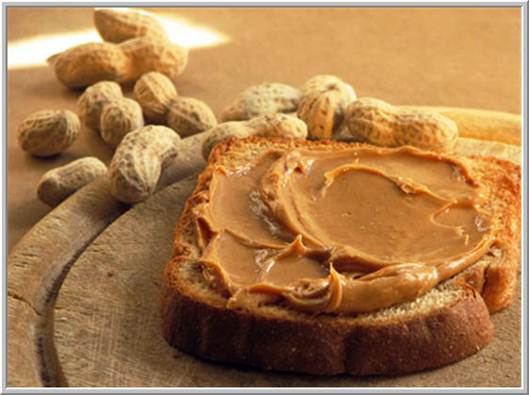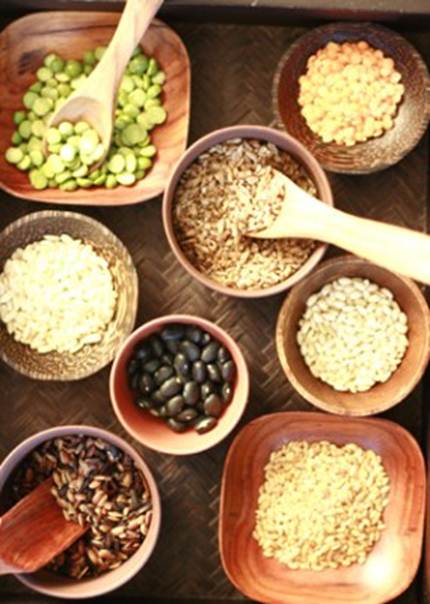3. If my cholesterol levels are good, it’s safe to eat lots of red meat
Prepared properly, in modest amounts, red
meat can be a part of a healthy diet; among other things, it's rich in readily
absorbed iron. However, there's good evidence that eating more than 500 grams
(roughly a pound) per week is associated with an increased risk for colon
cancer, a risk level that appears to continue climbing in tandem with the level
of consumption.

If
my cholesterol levels are good, it’s safe to eat lots of red meat
"Red meat by itself puts more iron and
saturated fat into the digestive system, and a lot of the iron goes undigested
and ends up in the colon," explains James Kirkland, an associate professor
of human health and nutritional sciences at the University of Guelph. Iron is a
pro-oxidant, meaning it produces by-products that can damage cells, which, over
time, could trigger tumour formation.
Kirkland adds that the relationship between
colon cancer and red meat consumption increases with cooking time and
temperature: the more well done the meat, and the hotter the stove or grill,
the greater the risk. "The chemistry behind that is very well
recognized," he says. "When you start cooking the meat more
extensively, carcinogens form."
4. All types of peanut butter reduce diabetes risk.
There's good research linking peanut and
peanut-butter consumption with a variety of health benefits, including a
decrease in Type 2 diabetes risk, but you may be missing out, depending on the
brand you buy.

All
types of peanut butter reduce diabetes risk.
"In the United States, if a product
contains less than 90 percent peanuts, it must be called a peanut-butter
spread, but Health Canada and the Canadian Food Inspection Agency do not have
any such regulation, "Schwartz explains. Consequently, the contents of the
jar in your cupboard could be something more akin to peanut-flavoured icing,
since some brands contain ingredients such as icing sugar, unhealthy fats, and
corn-syrup solids. (Incidentally, since peanuts contain healthy fats,
reduced-or low-fat versions aren't desirable: the fat content is cut by
substituting non-nutritious fillers.) "You're not going to get the same
health benefits if the product contains 75 per cent peanuts as you would if
it's 95 per cent or 100 per cent peanuts," Schwartz stresses.
So how can you choose a peanut-butter brand
that's most likely to deliver on the health promises held out by research?
Check the list of ingredients on the label: the best options will contain only
peanuts. Another tip: "Look at the amount of protein listed on the
label," suggests Massimo Marcone, an associate professor in the Department
of Food Science at the University of Guelph. "The higher the level of
protein, the more peanuts the product contains, and the less carbohydrate and
other fillers."
5. "Whole wheat" equals "whole grain."
"When you see 'whole wheat' or '100%
whole wheat' on the label, you assume you're getting a whole grain,"
Schwartz says, "but maybe not."

whole
grains equal
While writing a column for the National
Post, Schwartz discovered that, according to Canadian regulations, flour
can have much of the germ (the most nutritious part of the grain) removed and
still be labeled "whole wheat." (In fact, the product that prompted
Schwartz to probe the rules around flour labeling was a brand of white flour
with added bran that carried the claim "contains the goodness of whole
wheat.") What's more, even many nutrition professionals were un aware of
the loophole. "I contacted people at Ryerson who teach nutrition—they
didn't know," Schwartz says. "I did a survey of dietitians across the
country—and they didn't know."
So how can you tell if your so-called whole
wheat flour hasn't had most of the germ stripped away? "You have to look
for the words' whole grain whole wheat'" on the ingredients list, Schwartz
says.
|
Another Diet Myth Debunked
"Another huge myth is that weight
management is equally about exercise and food—and it's just not," says
Dr. Yoni Freedhoff, an obesity expert and the medical director of the
Bariatric Medical Institute in Ottawa. "Even people who believe exercise
to be a tremendous benefit calorically to weight loss will tell you it's
primarily food, with perhaps 80 per cent of a person's weight relatable to
his or her dietary choices, and 20 per cent to fitness." (Of course,
that's to say nothing of the many other benefits of exercise, such as the
ability to help improve your blood fat profile and blood pressure and to
boost the body's sensitivity to insulin.) True, in theory it doesn't matter
whether you cut calories from your diet or use them up by exercising, but the
latter is much more difficult than people realize.
"One of the struggles people have is
they feel exercise earns them the right to indulge a bit more,"
Freedhoff observes, "and the moment that occurs, you can pretty much
kiss any caloric benefits of exercise goodbye. I can eat a chocolate bar or
drink an energy drink in about a minute, but it's going to take me 40 minutes
of exercise to get rid of those calories. To lose a pound through exercise
requires a marathon of effort. You just can't out-train a bad diet."
|